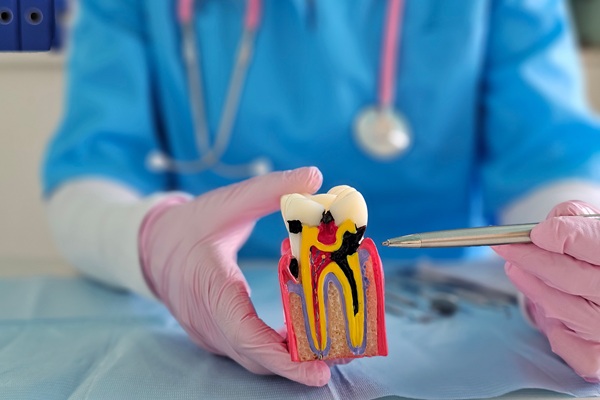Root Canal vs. Extraction: Make the Right Choice for Your Oral Health

A root canal is a common procedure a general dentist with endodontic training performs to save a tooth that has become infected or severely decayed. However, when faced with deciding between a root canal and tooth extraction, many patients are uncertain about which option is most suitable for their oral health. Both treatments have pros and cons, and the right choice depends on the condition of the tooth, the patient's overall health, and their long-term oral goals.
The benefits of a root canal
A root canal can save a damaged or infected tooth, allowing it to remain in the mouth and function normally. During the procedure, the dentist removes the infected pulp from the tooth, cleans the root canal, and seals it with a filling material. Once the procedure is complete, the tooth is restored with a dental crown to protect and reinforce it.
One of the main benefits of a root canal is that it preserves the natural tooth structure. Keeping the natural tooth is ideal for maintaining proper alignment and function of the surrounding teeth. By preserving the natural tooth, a root canal helps prevent potential issues such as shifting adjacent teeth or bite problems that may occur after an extraction. Additionally, the procedure is typically effective in relieving pain and eliminating infection, allowing the tooth to last for many years.
The drawbacks of a root canal
While root canals can save a damaged tooth, it is not always the most suitable option. A root canal can be time-consuming and may require multiple visits to the dentist, especially if the infection is extensive or complicated. After the procedure, the tooth may be more vulnerable to fractures or damage, particularly if it is significantly weakened by decay. As a result, the tooth may eventually need further treatment or replacement.
In some cases, a root canal may not completely eliminate the infection, requiring additional procedures or, in rare cases, tooth extraction. If a tooth is severely infected or damaged beyond repair, a root canal may not be viable.
The benefits of an extraction
Extraction, or removing a damaged or infected tooth, may be necessary when a root canal is impossible or the tooth is beyond saving. Extracting a tooth eliminates the infection and prevents it from spreading to other teeth or areas of the mouth. It also alleviates any associated pain or discomfort.
An extraction may be a more straightforward option than a root canal, particularly in cases where the tooth is severely decayed or damaged. For patients with advanced periodontal disease or significant tooth damage, removal may be necessary to prevent further complications.
The drawbacks of an extraction
While tooth extraction can provide immediate relief, a replacement tooth, such as a dental bridge, dental implant, or denture, is necessary. This replacement can be costly and may require additional procedures, such as bone grafting, to ensure a proper fit and optimal functionality. Additionally, missing teeth can affect the bite, lead to shifting of adjacent teeth, and cause aesthetic concerns, particularly if the extraction occurs in the front of the mouth. Extracting a tooth can also impact long-term oral health by affecting the surrounding bone structure, as it will deteriorate without an effective solution.
Schedule an appointment
Deciding between a root canal and tooth extraction depends on various factors, and you should not make this decision by yourself. Consulting a general dentist can help you better weigh both options. Contact Shari L. Hyder, DMD to schedule an appointment.
Request an appointment here: https://hyderdentistry.com or call Shari L. Hyder, DMD at (856) 626-5047 for an appointment in our Oaklyn office.
Check out what others are saying about our dental services on Yelp: Root Canal in Oaklyn, NJ.
Related Posts
A root canal is a dental technique devised to treat infection or damage within the pulp (the innermost chamber) of the tooth. While the procedure has a reputation for being painful, thanks to anesthetics, it is often no more uncomfortable than getting a filling.While there is no recovery period after getting a root canal, proper…
A preventive dentist promotes long-term oral wellness by focusing on early detection, regular checkups, and proactive measures to protect teeth and gums from disease. By prioritizing prevention, you can avoid many dental issues before they even begin. Explore some of the most frequently asked questions about preventive dentistry, gain valuable insight that can help you…
A preventive dentist focuses on maintaining a patient’s oral health and preventing problems, such as sensitive teeth, from becoming more serious issues, like gum disease. This typically involves routine dental checkups, cleanings, and oral health screenings. By focusing on prevention, patients have a better chance of avoiding the need for more extensive and costly treatments…
Practicing preventive dentistry at home allows you to reap many benefits for your general health. Brushing and flossing every day is a basic way of keeping your mouth in good shape. Having healthy teeth and gums helps support your whole body’s health. If you want to find out why good everyday dental hygiene is important…
